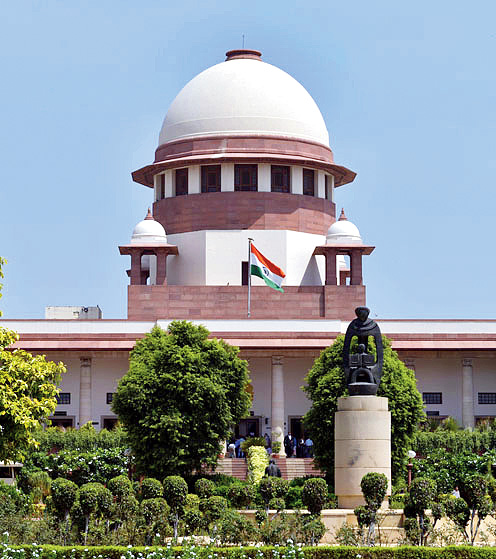The Supreme Court on Monday gave the government a week to submit details of wages paid through direct benefit transfer to migrant workers, but refused to direct the government to allocate Rs 20,000 crore towards their salaries.
The bench of Chief Justice of India S.A. Bobde and Justices L. Nageswara Rao and M. Shantanagoudar said the matter fell within the domain of the executive.
The court also felt that allocating Rs 20,000 crore for salaries in addition to the free meals being provided might not be possible.
“Mr Bhushan, what you are saying we can’t direct (the government) to do it, there are four crore people involved…,” Justice Rao told advocate Prashant Bhushan during a hearing.
The counsel had sought a directive to the Centre to set aside Rs 20,000 crore towards wages for over four crore migrant labourers who had been left stranded by the countrywide Covid-19 lockdown and are now housed at shelters where they are provided with free meals.
At the earlier hearing, too, the court had questioned the need for paying salaries to the workers when their food and medical requirements were being taken care of.
Bhushan had then said the families of these migrants back home were dependent on their income and couldn’t be left to starve.
On Monday, Bhushan, who appeared for civil liberties activists Harsh Mander and Anjali Bharadwaj, told the court the Rs 20,000-crore allocation he had sought was not even 0.1 per cent of the country’s GDP.
Advanced countries like Germany, the US and the UK, he said, were paying salaries to workers, apart from providing them food and other benefits.
But the bench said it couldn’t pass any directive on allocation of funds for salaries. “…if we have to pass all the directions that are there in your petition, we will have to start running the government,” Justice Rao said.
The judge then turned to solicitor-general Tushar Mehta and said: “We have seen your affidavit and appreciate the way food, shelter, etc., is being provided. But are you thinking about giving them some income?”
Mehta said the government had first looked into the most relevant issues, such as food and medical facilities at the shelter homes.
“We have done what was priority. We have taken immediate steps first,” Mehta said.
The solicitor-general then referred to his file for the number of people paid wages through direct benefit transfer. The bench told the law officer it did not have a copy of the file, which Mehta was referring to. Mehta then offered to place it at the next hearing.
The court then fixed April 20 for the next hearing.
PM CARES
The Supreme Court on Monday dismissed a plea that had challenged as illegal the establishment of the PM CARES Fund for donations towards the Covid-19 battle.
Petitioner M.L. Sharma, an advocate, had argued the new fund lacked statutory backing unlike the National Disaster Response Fund (NDRF). “This is a completely misconceived petition,” the bench of Chief Justice S.A. Bobde and Justices L. Nageswara Rao and M. Shantanagoudar said.











